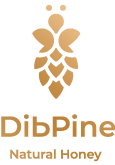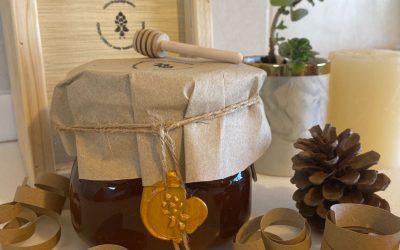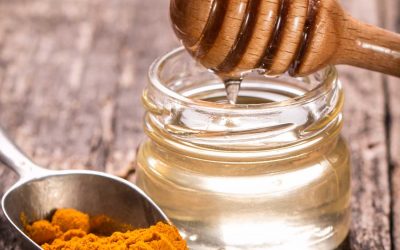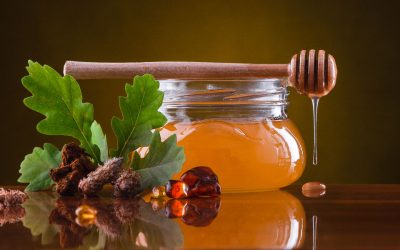Are antioxidants really good for us? Which are the best: from supplements or from food? Does honey have antioxidants? This article will cover all these and much more.
What are antioxidants?
Let’s see what’s oxidation first.
Oxidation is a chemical reaction that can produce free radicals, leading to chain reactions that may damage cells. Antioxidants (like vitamin C) terminate these chain reactions.
Should we take antioxidant supplements?
It’s hard to remain sane and healthy when we are surrounded by so much cancer and other diseases. And it’s even more hard to remain sane and healthy with so much pharmaceutical advertising around. There are psychotherapists telling that all these ads, being repeated so often would enter our subconscious mind directly, making us believe that we will never get better unless take that specific medicine.
And so, we take antioxidants. To prevent a disease. But we forget the most important thing ever: Our body is a highly intelligent organism, which functions by its own, without our intervention.
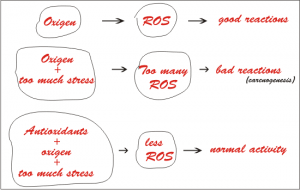
this scheme applies to non-cancer subjects
Yet, let’s not get paranoid and let’s not prevent anything. Let’s only trust our body, love it and thank it. And supply it with natural food so it an take whatever needed from there. It is the most complex thing on this world, that knows better how to take care of itself. Only stick to a balanced diet, physical exercise and peaceful thoughts. Our body knows how to take its antioxidants from the food.
Which are the antioxidants?
Antioxidants can be of 2 types: soluble in water and soluble in lipids (fat). Some can be produced by our body, but some not and our diet should include them.
Here are some of them: Vitamin C, Selenium, Zinc, Glutathione, Lipoic acid, Uric acid, β-carotene, Retinol (vitamin A), α-Tocopherol (vitamin E), Ubiquinol (coenzyme Q), Superoxide dismutase, Catalase and Peroxiredoxins and others.
Personal conclusion: take your antioxidants from the food you ingest, not from supplements. Coming from food, our body knows what to keep and what to reject. Honey does not have huge quantities of antioxidants, but they are in the right proportions and perfectly suited for our body.
Antioxidants present in honey
Although the antioxidant activity of honey has been extensively studied, scientists have not yet agreed and understood it. This happens because honey is such a very complex mixture, containing ingredients involved in both “oxidant/antioxidant” physiological processes. Among them: hydrogen peroxide, nitrite, nitrate, glucose, glucose oxidase, iron, copper, chlorine, iodine, catalase, tyrosine, tryptophane, arginine, flavonoides, phenolics acids, Maillard reaction products, its pH is not stable etc.
The most important antioxidants in honey are:
• polyphenols (flavonoids flavonols, phenolic acids, catechins, and cinnamic acid derivative)
• vitamins (C and E),
• enzymes (catalase, peroxidase and glucose oxidase),
• carotenoids
• organic acids
• amino acids and proteins
• products of the Maillard reaction (in pasteurized honeys)
These antioxidants work synergistically in honey. Scientists separated flavonoids and phenolic acids from honey and tested them in in vitro. The results showed that they produced only a portion of the total antioxidant activity of honey. Their conclusion: each antioxidant contributes significantly to the antioxidant capacity of honey, but they act synergistically.¹
Are Antioxidants the same in all honeys?
Definitely NO.
The antioxidant content depends on several factors: the species of bee, botanical source, season, weather, environment and processing methods. Depending on the type of honey, the antioxidant content can range from 56 to 500 milligrams of antioxidants per kilogram of honey.
Dark-colored honeys have higher antioxidant activities than light-colored honey.
![]()
Which are the most powerful antioxidant honeys?
The antioxidant properties of honey depend on the botanical origin of honey, the darker the honey the higher its antioxidative power. Polyphenols seems to be the most important antioxidant agent in honey, and dark honey are the ones with the largest quantity of polyphenols .
With the exception of some relatively lighter honeys like arbutus honey from southern Europe and sourwood honey from Malaysia.
Here are the dark honeys which have especially high antioxidant power:
· Buckwheat (Fagopyrum sp.)
· Chinese milk vetch (Astragalus adsurgens)
· Heather (Caluna vulgaris, Erica umbellata)
· Honeydew (all types of honeydew honeys)
· Manuka (Leptospermum Scoparium
· Strawberry tree honey (Arbutus menziesii)
· Sweet chestnut (Castanea sativa)
· Tualang (Koompassia excelsa)
· Ceratonia
· Peppermint
Dark honeys found in the supermarkets are not dark because of a high content of polyphenols, but because of the heating process it suffered. (see pasteurization paragraph below and read more about how is honey processed.)
Are antioxidants in honey really making a difference?
· Antioxidant scavenging activity is linked to the prevention of many chronic and age dependent pathological conditions like cancer, diabetes, atherosclerosis, cataract and other chronic pathological conditions.
· Antioxidant properties of honey act as an antidepressant during high emotional, physical and intellectual stress. For example, Bashkir honey is part of the daily meals of astronauts and it is also used by deep-sea divers.
· Generally, antioxidant and hepatoprotective properties correlate well with each other, as decreasing harmful radicals will protect the liver from them. (Stefan Bogdanov, 2014)
· The study Honey with High Levels of Antioxidants Can Provide Protection to Healthy Human Subjects, by Derek D. Schramm et al., from Departments of Nutrition and Internal Medicine at the University of California, published in 2003, showed that the substitution of honey in some foods for traditional sweeteners could result in an enhanced antioxidant defense system in healthy adults.
Is pasteurization and time affecting antioxidants?
We find honey in a raw state, meaning exactly how it is harvested from the hive, without being heated (in order to be filtered) or processed in any way. (see What is the difference between pure honey and raw honey?) Or, we can find pasteurized honey, especially in supermarkets. It is pasteurized for an aesthetic reason: to prevent unwanted honey crystal formation, but also to destroy harmful microorganisms.
Warning: Dark honey due to pasteurization!
During pasteurization, the heat causes a type of browning referred to as the Maillard reaction. The sugars in honey (fructose and glucose) bind to free proteins and form brown-colored pigments called Maillard reaction products. This darkens the honey and also causes losses in the amount of natural honey antioxidants.
Pasteurization changes honeys in different ways
In 2004, X.-H. Wang of the University of Illinois and others. studied the effects of heat processing on the antioxidants in buckwheat and clover honey. While pasteurization had no In 2004, X.-H. Wang of the University of Illinois and others. studied the effects of heat processing on the antioxidants in buckwheat and clover honey. While pasteurization had no effect on clover honey, it decreased the antioxidant capacity of buckwheat honey by approximately one-third compared with raw buckwheat honey.
Scientists explained that this may be because different antioxidant structures break down less during pasteurization. Pasteurization increased the levels of quercetin and galangin antioxidants in clover honey, and reduced the amount of galangin in buckwheat honey.
Time also influences the antioxidant level.
The highest level of antioxidant levels measured in buckwheat honey was immediately after harvest. After six months of storage, the antioxidant capacity of the raw and pasteurized buckwheat honey were similar.
Both the phenolic content and the antioxidant capacity of honey decreases significantly after one year of storage at room temperature (Sariq G, 2012).
Conclusion:
Take antioxidants if you are having a cold or a flue – to boost your immune system.
Do not take antioxidants if you are having cancer.
The best antioxidants are the ones found in natural food, with that specific food.
Honey has the perfect amounts of antioxidants and other substances required for our body.
Always remember that we should pay more attention to our emotional life than to the food we eat. 🙂
“Tannic acid” by en:User_talk:Ronhjones – Own work. Licensed under Public Domain via Commons
References:
¹ Gheldof N, Engeseth NJ (2002) Antioxidant capacity of honeys from various floral sources based on the determination of oxygen radical absorbance capacity and inhibition of in vitro lipoprotein oxidation in human serum samples. J Agric Food Chem 50: 3050-3055;
– http://www.webmd.com/diet/20040330/honey-sweetens-your-health;
– http://www.livestrong.com/article/548275-does-the-pasteurization-of-honey-take-out-the-antioxidants/;
– “Tannic acid” by en:User_talk:Ronhjones – Own work. Licensed under Public Domain via Commons
https://en.wikipedia.org/wiki/Polyphenol
– http://www.degruyter.com/view/j/pjfns.2015.65.issue-2/pjfns-2015-0024/pjfns-2015-0024.xml
– http://www.omicsgroup.org/journals/how-honey-acts-as-an-antioxidant-2167-0412.1000e121.php?aid=7181;
– Katrina B, Danielle M (2011) The recognition of high molecular weight melanoidins as the main components responsible for radical-scavenging capacity of unheated and heat-treated Canadian honeys. Food Chem 125: 570-575;
– Katrina B, Danielle M (2011) Honey melanoidins: Analysis of the compositions of the high molecular weight melanoidins exhibiting radical-scavenging activity. Food Chem 127: 1023-1030;
– Honey in Traditional and Modern Medicine, edited by Laïd Boukraâ;
– SARIC, G; MARKOVIC, K; MAJOR, N; KRPAN, M; URSULIN-TRSTENJAK, N; HRUSKAR, M;
VAHCIC, N (2012) Changes of Antioxidant Activity and Phenolic Content in Acacia and Multifloral
Honey During Storage. Food Technology and Biotechnology 50 (4): 434-441.
